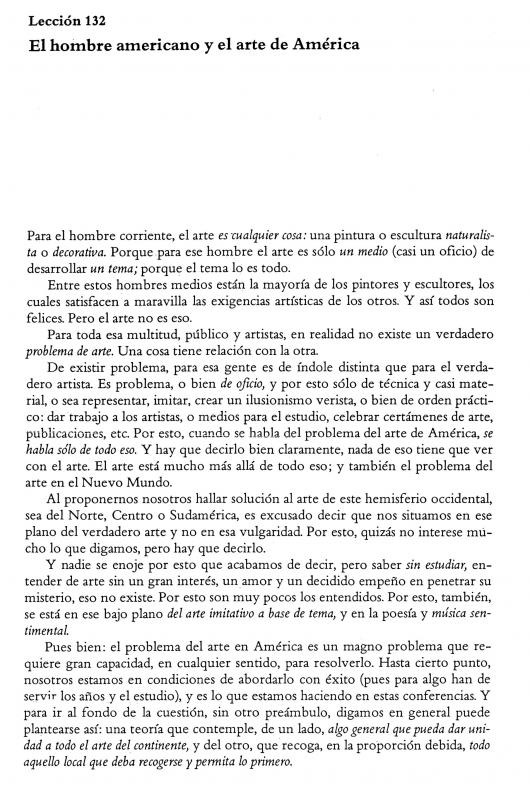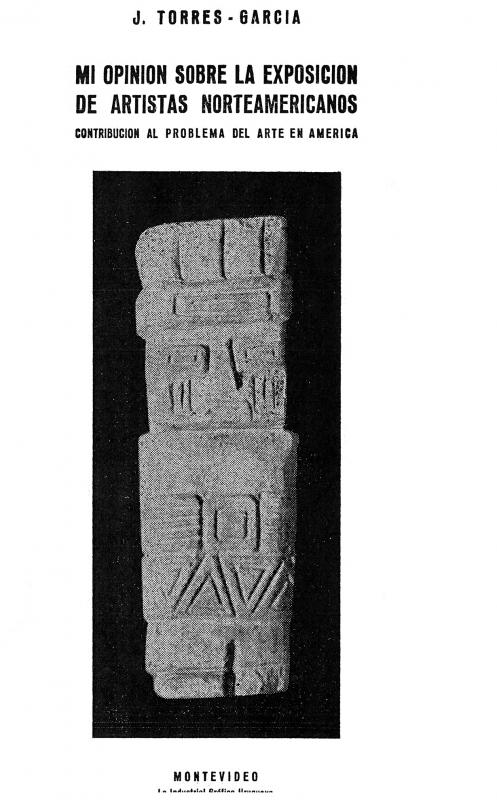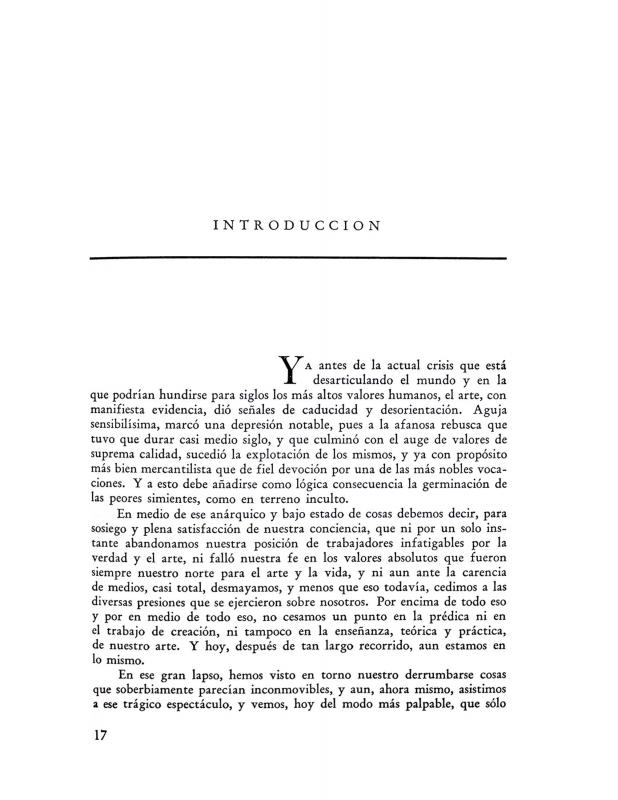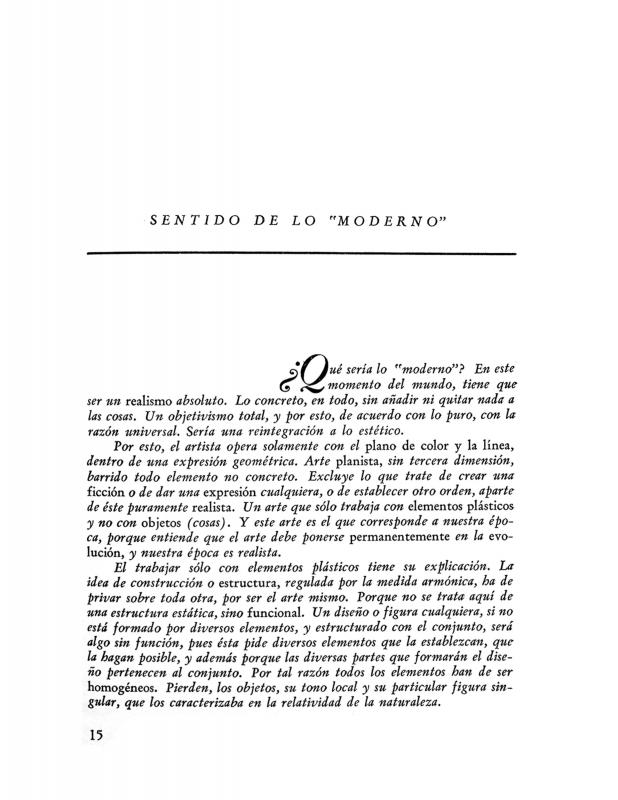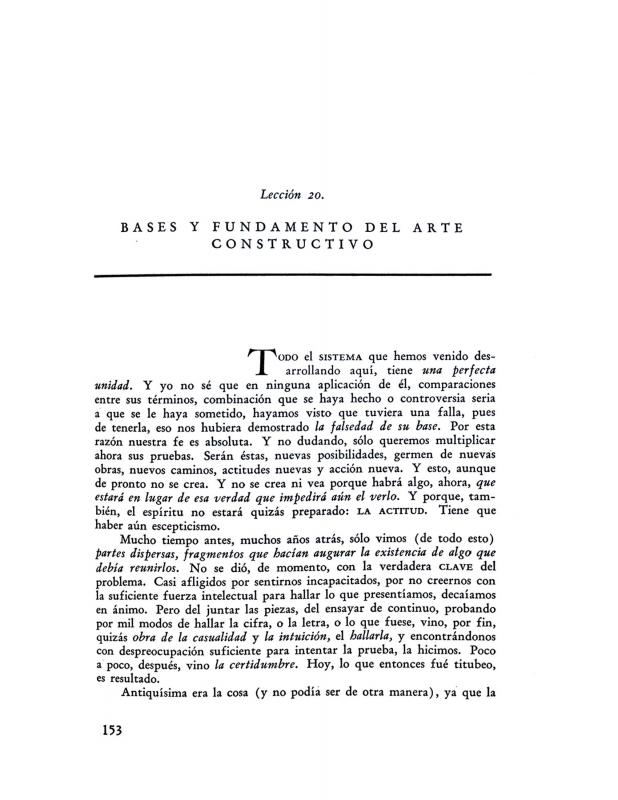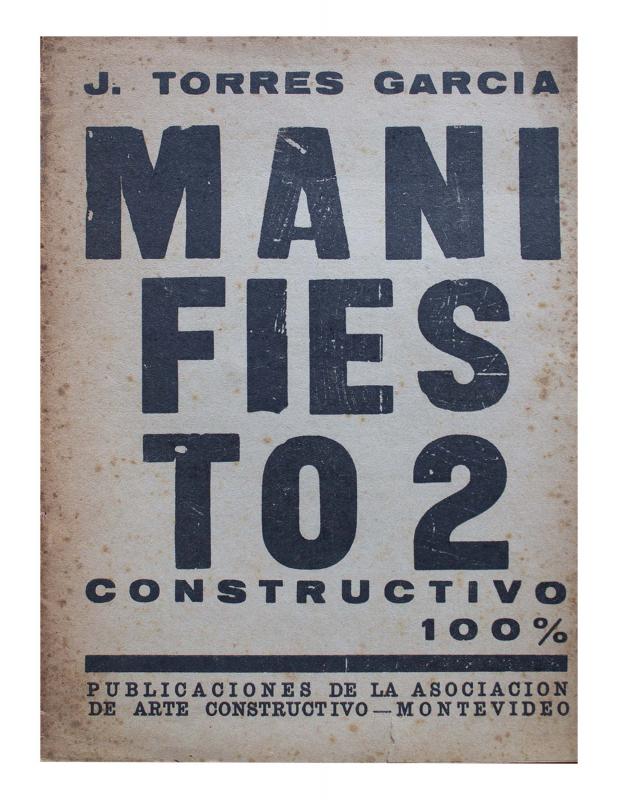In this document Joaquín Torres-García (1874–1949) states that his goal (which he shared with the Uruguayan artists who joined him when the TTG was founded) was an aesthetic renewal that excluded individualism and rejected temporal-local objects. He thus underscored the need to eliminate all superfluous elements, leaving just the basics. Torres-García acknowledged that he was “on an island” where he was unable to convince anyone, but he stubbornly clung to his ministry in the face of mainstream provincial traditionalism. He suggested making room for a kind of art that would be a visual metaphor of a cosmic order, of spiritual harmony, and not merely a means to purge inner artistic feelings. In this article the maestro insists that (universal, abstract) Man should prevail over “individual-man.” Here he voices his concern regarding the void that exists between the two spheres of the human experience (the temporal and the eternal), and his suspicion that naturalist images help us forget the void. In fact, the task he set himself was to construct an art theory and practice that would articulate that “void,” that distance between the real and the abstract, between the temporal and the eternal, thus eliminating the imminent danger that it could be forgotten. The final sentence (“We must possess the science from before things were created”) reveals his philosophical depth; in other words, Torres-García proposes reclaiming a memory of knowledge prior to language, a memory of the true Origin and atemporal point of departure of the Great Tradition.
[As complementary reading see, in the ICAA digital archive, the following articles written by Joaquín Torres-García: “Con respecto a una futura creación literaria” (doc. no. 730292); “Lección 132. El hombre americano y el arte de América” (doc. no. 832022); “Mi opinión sobre la exposición de artistas norteamericanos: contribución” (doc. no. 833512); “Nuestro problema de arte en América: lección VI del ciclo de conferencias dictado en la Facultad de Humanidades y Ciencias de Montevideo” (doc. no. 731106); “Introducción [en] Universalismo Constructivo” (doc. no. 1242032); “Sentido de lo moderno [en Universalismo Constructivo]” (doc. no. 1242015); “Bases y fundamentos del arte constructivo” (doc. no. 1242058); and “Manifiesto 2, Constructivo 100%” (doc. no. 1250878)].


